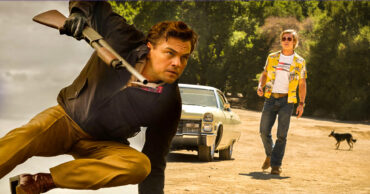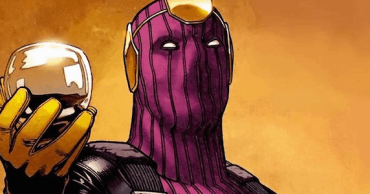Chris McKay’s Renfield ends with a triumphant bang, giving the heroes (and by extension, the audience) some much-needed catharsis. In a film that’s as much about the horrors of codependent relationships as it is the horrors of bloodsucking vampires, the final climax is, expectedly, framed as achieving self-empowerment. Killing off an ancient, powerful, god-like demon is just an added bonus.
Renfield is a supernatural horror comedy that adapts elements of Bram Stoker’s Dracula for a new, contemporary story. Nicolas Cage plays Count Dracula, an immortal, powerful vampire who loves murder and mayhem — but has a tendency to get severely wounded, requiring someone to care for him while he regenerates. This is where his familiar, R. M. Renfield, comes in: Like his book counterpart, Renfield (Nicholas Hoult) is an unhinged man whose mind has been warped by his master’s influence. He eats insects and spiders, wanting to consume their life force. Unlike in the novel, however, this “life force” actually does give Renfield superhuman strength and immortality.
What Happens In Renfield’s Ending
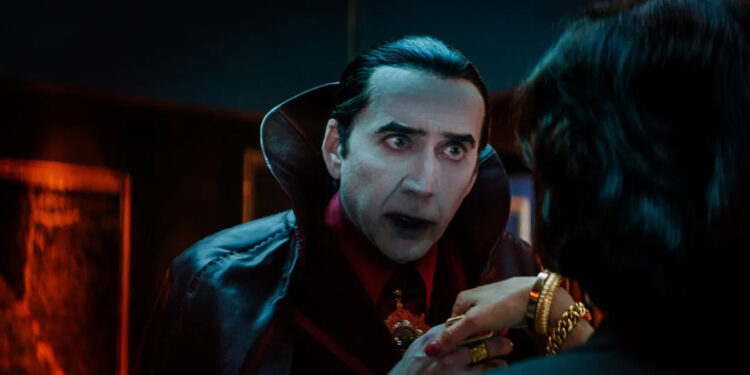
Wanting to get back at Renfield for “betraying” him (i.e. not being completely submissive and dedicated to him at all times), Dracula kills the members of his self-help group. He has a new mission now: hurt his former familiar. To do that, he teams up with the Lobo crime family, and creates a situation where he can get access to Renfield’s new friend Officer Rebecca Quincy. As Renfield faces off against his foil Teddy Lobo (Ben Schwartz) — which ends with the movie’s most extreme, gross-out moment of violence — Dracula attempts to thrall Rebecca, offering her a chance to save her sister, Kate, from death if she joins him.
Rebecca initially appears to be under Dracula’s spell, but this is a ruse — once his guard is down, she switches the blinds open, leading into the final boss battle. Renfield finds the strength to stand up to Dracula, overcoming his fear and punching him in the face many, many times. With the help of some cocaine and Wiccan Tumblr, Rebecca creates a protection circle to ensnare Dracula, whom she and Renfield brutally dismember — being careful to reserve some of his blood to revive Kate and the dead self-help group members.
How Renfield Reaches Full Power To Kill Dracula
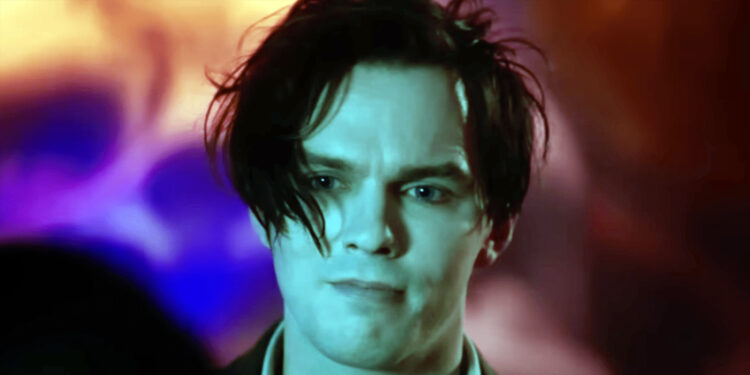
A major theme in Renfield is power: not just the superpowers that Dracula and Renfield possess, but also the power that manipulative abusers hold over their victims, the power we give to those who hurt us through our own actions, and the power that one possesses to take back their life. When Renfield says in his self-help group that he can prevent Dracula from reaching “full power,” he means it in a literal sense — but it also works for the allegory of codependent relationships. On a surface level, yes, not giving Dracula fresh victims will prevent (or at least stall) his regeneration, but metaphorically speaking, choosing to focus on oneself instead of submitting to the needs and demands of a toxic partner is a great first step toward agency.
A key moment in the ending of Renfield is the titular character’s realization that he isn’t helpless compared to Dracula, and can fight back in a physical and emotional sense. At the beginning of the film, Renfield saw himself as passive, helpless, and vulnerable. By the end, he’s learned to take responsibility for his own choices, and in doing so has himself “come to full power.” The audiences sees Renfield stronger than ever before — with Dracula’s expression conveying that their roles have reversed. Once Dracula is trapped in the protection circle, Rebecca and Renfield use every means necessary to destroy him; the former servant is literally dismantling the oppressive force that controlled his life for over 70 years.
Dracula Is Dead… But His Blood Remains
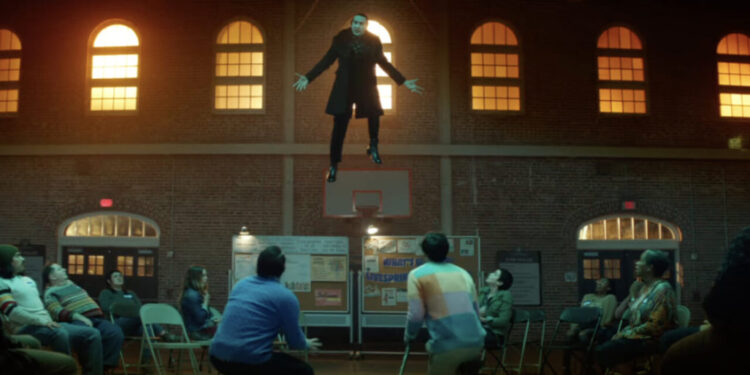
Renfield has a happy ending. Not only is Dracula defeated, but Rebecca and Renfield managed to score enough of the vampire’s healing blood to bring back their loved ones. All is mostly fine — there are some hints that coming back from the afterlife has left the already-shaken self-help group members with a wee case of PTSD — but the future looks bright, if also a bit unclear.
There are certainly lingering questions (weren’t those bodies in the morgue? What about all the people Rebecca and Renfield murdered — surely a bunch of dead police officers will garner some attention? How does Renfield have the finances to pay for that apartment in this economy?), but setting aside disbelief for a minute, the biggest loose thread is Dracula’s blood. One of the last shots in the movie is a half-full pitcher of the stuff just sitting out on a table. Sure they chopped him up and disposed of the bits, but there’s also a gallon of him left over — not to mention however much blood is now coursing through the veins of the people he “healed.” If Renfield still has his powers, and if Dracula’s blood can still reverse mortal injury, does that mean the Count isn’t really gone?
A Renfield Sequel Is Possible (But Unlikely)
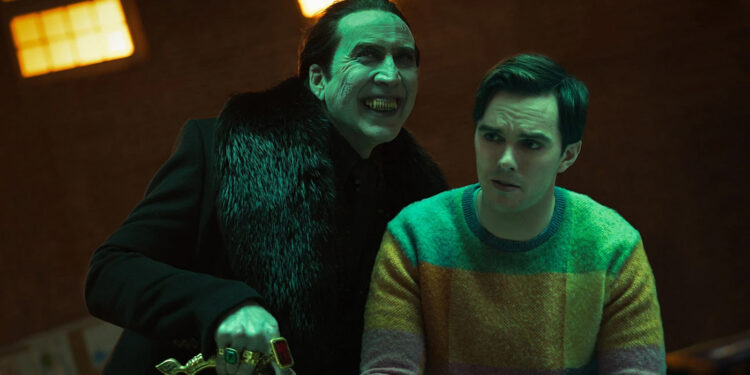
The ambiguousness of Renfield‘s ending certainly leaves the door open for a sequel. Given that Renfield says that he’s not sure if Dracula can truly die, and the fact that the vampire blood still has its supernatural powers, it seems reasonable that a sequel could bring Nic Cage’s Dracula (or Cage-ula, if you will) back from the undead. Another possibility is a prequel; the movie gives us a taste of Renfield and Dracula’s life before the 21st century via flashback, but there’s definitely room to explore that origin more.
Ultimately, it seems very unlikely that Universal Pictures will order a Renfield sequel. From a purely financial perspective, it doesn’t seem like this film is going to be a big money-maker. The budget was pretty large for a film this quirky, and it was already going to be a challenge just to break even. To put it in perspective: Shaun of the Dead only did about $30 million in the box office, despite its critical acclaim — but because it was made on a budget of just over $6 million, that was a success. Renfield cost ten times as much to make.
There’s also the issue of the Dracula property. There’s another adaptation coming out later this year, The Last Voyage of the Demeter. If Universal was looking to launch a Cage-led Dracula franchise, it wouldn’t make sense to then distribute a competing version of the character a few months later. It’s a shame we’re unlikely to see a Renfield sequel in the future, because the world needs more Cage-ula.
 Follow Us
Follow Us


